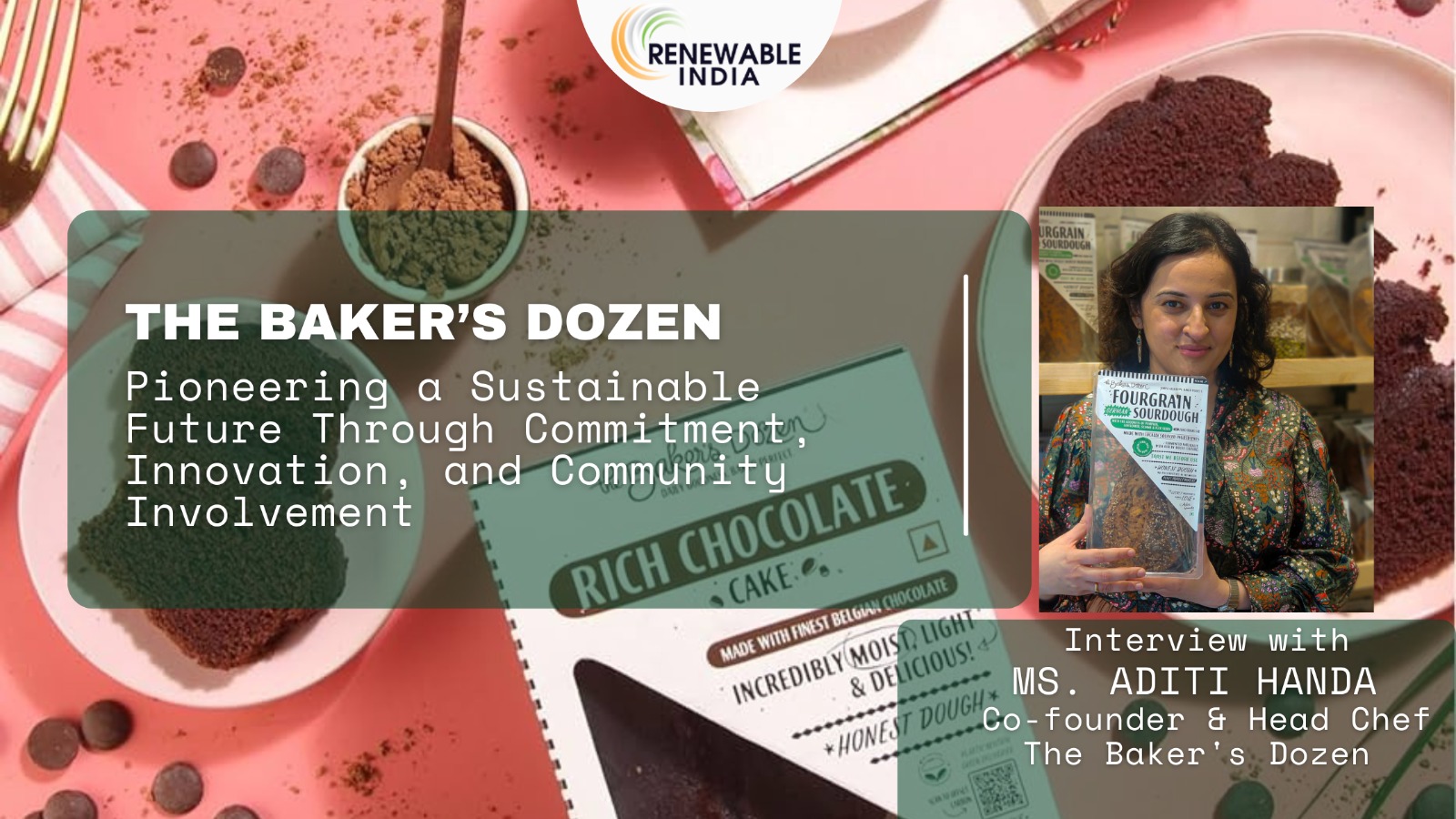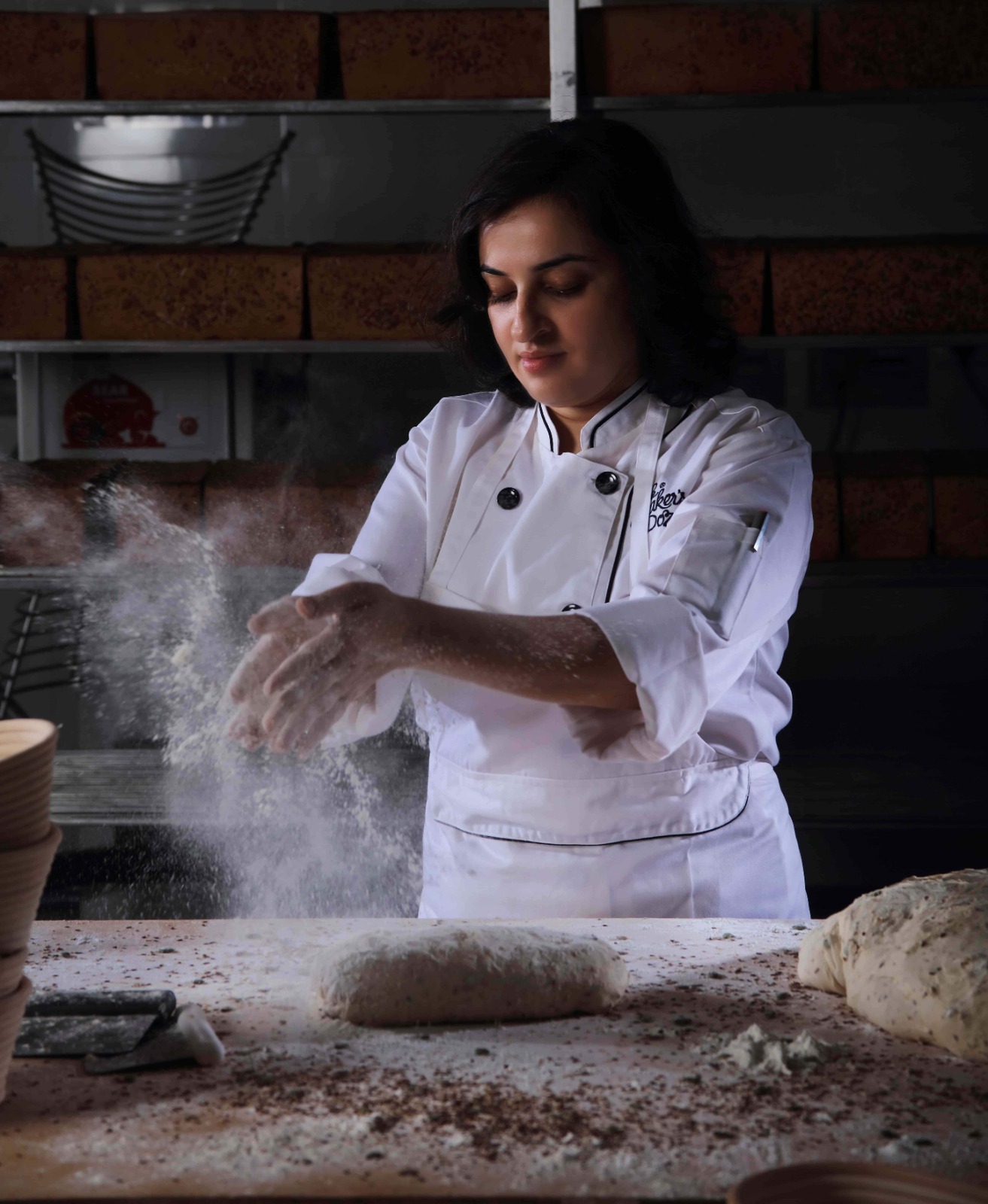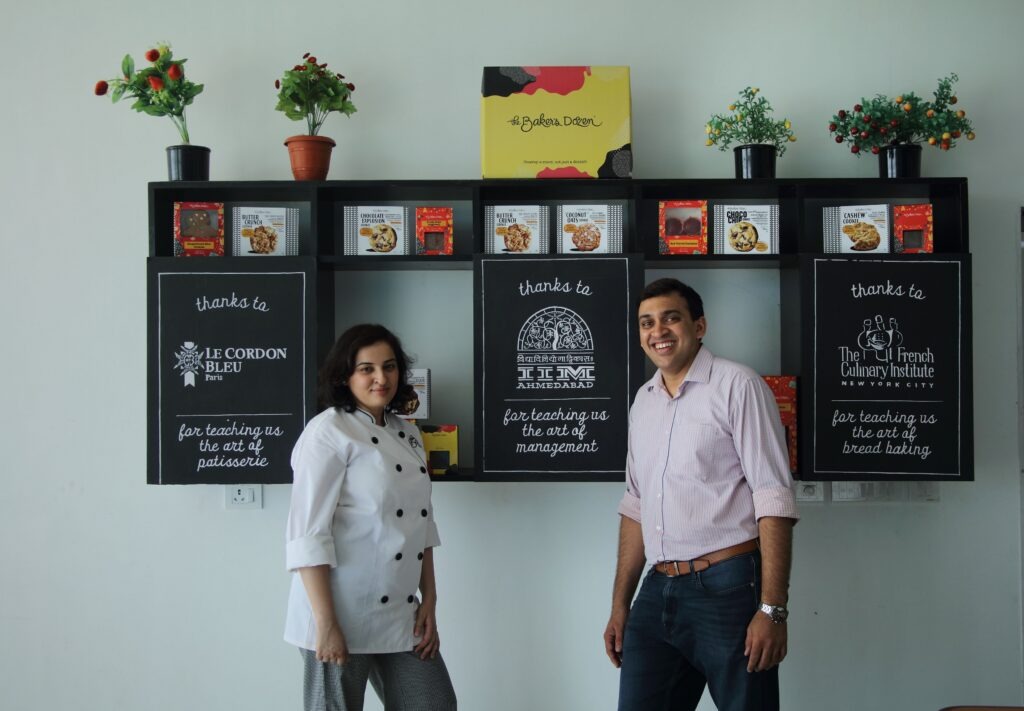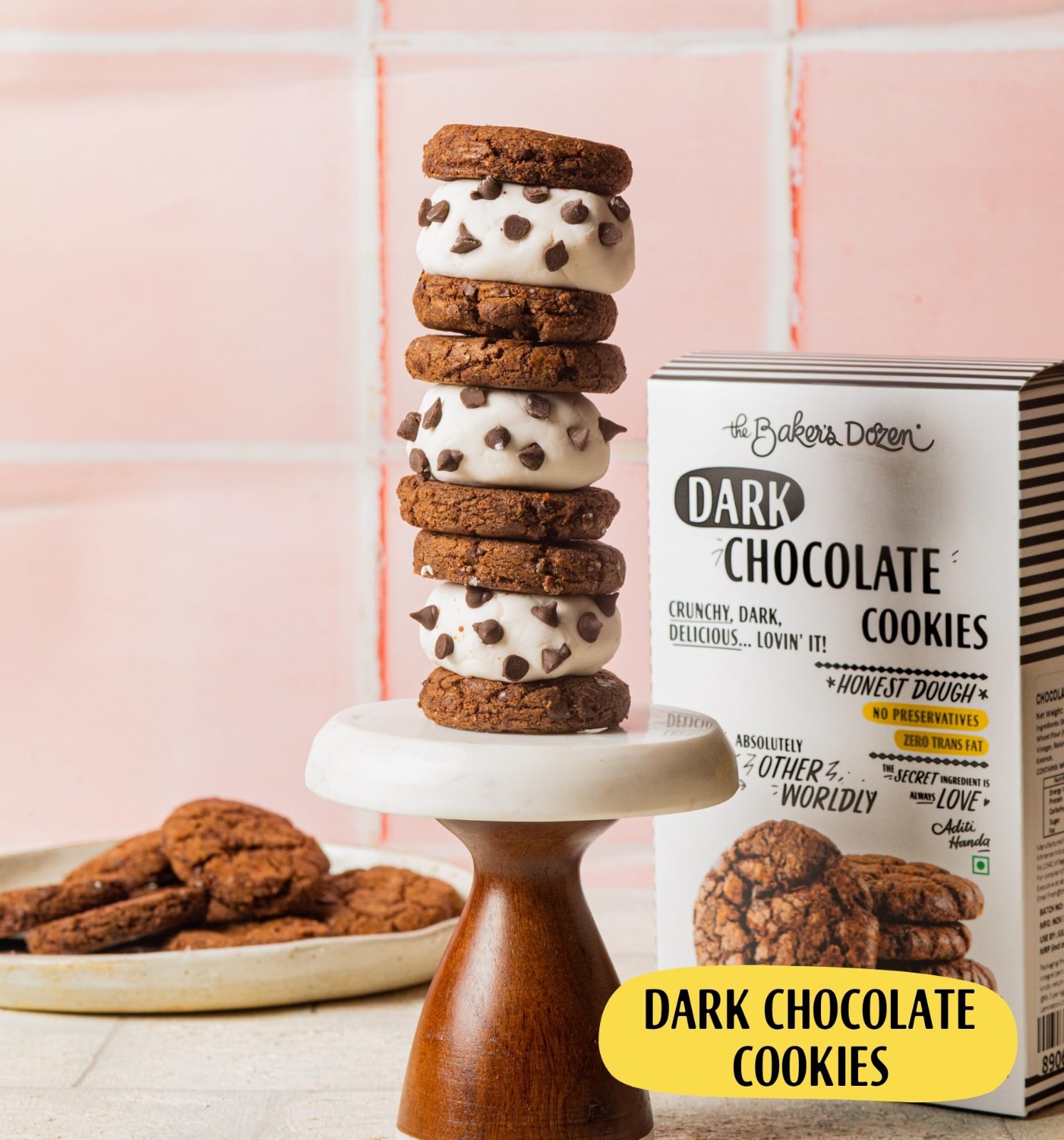
The Baker’s Dozen is committed to reducing its carbon footprint by 10-15% and significantly cutting plastic usage by the end of the year. To achieve these goals, the brand has partnered with ‘Recykal,’ ‘Wastelink,’ and ‘Climes.’ Through ‘Recykal,’ The Baker’s Dozen aims to achieve plastic neutrality by recycling the equivalent amount of plastic it uses. ‘Wastelink’ will help manage food waste to offset carbon emissions from food returns, while ‘Climes’ will involve customers in climate action, enabling them to contribute to reducing the brand’s overall carbon footprint. Additionally, delivery routes will be optimized to lower supply chain emissions.

Renewable India Interviews Aditi Handa, Co-founder & Head Chef of The Baker’s Dozen, on Pioneering Sustainable Practices in the Culinary World. Read on to know more:
In 2019, when we shifted to plastic packaging, some of our customers were disappointed. They expected us not just to make an honest product but also to ensure we have ethical environmentally friendly practices. This was the moment when we first started to work on reducing our carbon footprint. Our main focus at that time was waste segregation and reducing food waste.
In early 2023, we decided to take this significantly further. We identified the total carbon footprint of The Baker’s Dozen and set a goal to be carbon neutral over the next 10-15 years. For the first milestone we decided to be plastic neutral i.e recycle as much plastic as we use and have green deliveries i.e offset the carbon footprint of our transport /delivery infrastructure.
Our internal campaigns and workshops have been instrumental in building a culture of sustainability within The Baker’s Dozen. One of the ideas was the development of green delivery routes, optimizing logistics to minimize carbon emissions. These initiatives not only helped us achieve our sustainability goals but also encouraged continuous improvement and creativity among our team members.
We believe that small steps can lead to significant changes. One such impactful initiative we’ve undertaken is encouraging carpooling among our team members across cities. This initiative did not just help reduce our carbon footprint; it also helped build better inter-team relations and bonding.
By promoting carpooling, we’ve been able to significantly cut down on our carbon emissions happening through employee commuting, contributing to a greener and more sustainable environment. Our team members have embraced this change wholeheartedly, understanding the positive impact their participation has on the planet.
During the entire journey of moving towards carbon neutrality there has been a wave of energy in our teams. They have brought similar practices within their personal lives too whether it is carpooling , walking shorter distances, water wastage, etc.

At The Baker’s Dozen, we treat our customers as our stakeholders and our customers have been incredibly supportive and engaged in our all of our projects, especially sustainability ones. One such example is our collaboration with ‘Climes’, where we involved our community in choosing climate action projects. Our customers can choose a reforestation project that has since resulted in the planting of thousands of trees, significantly contributing to carbon offsetting. This project not only helped in reducing our carbon footprint but also strengthened our bond with our customers, who appreciate having a direct role in our sustainability efforts.
To achieve a 10-15% reduction in our carbon footprint, we are implementing several key measures. These include optimizing our delivery routes to reduce carbon emissions, and actively recycling the food waste being generated due to RTV or any damage. Additionally, we’ve partnered with ‘Recykal’ to manage and recycle the plastic waste generated by our products. We are also focusing on energy efficiency in our production processes and exploring alternative, eco-friendly packaging materials.
Our partnerships with ‘Recykal’, ‘Wastelink’, and ‘Climes’ are integral to our sustainability strategy. ‘Recykal’ helps us manage and recycle plastic waste, contributing significantly to our goal of achieving plastic neutrality. Today, The Baker’s Dozen is a “Plastic Neutral” brand, which means we recycle as much plastic as we use. Through ‘Wastelink’, we effectively manage food waste and offset carbon emissions from food returns. Our collaboration with ‘Climes’ involves our community in climate action projects, enhancing our commitment to reducing our overall carbon footprint at company level. We also switched to electric vehicles in certain cities transporting our products, hence following the “Green Deliveries”. Together, these partnerships have enabled us to make substantial progress in our sustainability journey, reducing our environmental impact and promoting responsible practices.
Our strategy for achieving plastic neutrality involves a multi-faceted approach. We are actively reducing the use of plastic in our packaging by either cutting down the use of plastic at some level or by switching to the alternative solutions to avoid use of plastic wherever possible and promoting recycling amongst our customers. ‘Recykal’ plays a crucial role in this process by helping us manage and recycle the plastic waste generated by our brand. We recycle as much plastic as we use and are now a “Plastic Neutral” brand, contributing to a circular economy. This initiative has the potential to create a substantial positive impact by reducing plastic pollution and conserving valuable resources.
Our partnership with ‘Wastelink’ has been instrumental in managing food waste and offsetting carbon emissions from food returns. ‘Wastelink’ helps us implement rigorous processes to minimize food waste at every stage of our operations. For instance, we use AI-based demand forecasting models to make better predictions and reduce excess supply, resulting in reduced wastage. By taking such measures, we’ve made considerable strides in reducing food waste, aligning with our broader sustainability goals and making a positive impact on the environment.

Engaging our customers in climate action through ‘Climes’ has truly been a rewarding experience. We involve our customers by giving them the opportunity to choose climate action projects they want to support and also rewarding them with their favourite product to encourage them to give back to the environment. This has resulted in building a very strong, purpose driven and responsible community which is invested in our sustainability journey towards a better future. The response has been overwhelmingly positive, with customers appreciating the chance to make a direct impact.
Optimizing delivery routes to reduce emissions has come with its set of challenges, such as logistical complexities and ensuring timely deliveries. However, we’ve overcome these challenges by leveraging technology and data analytics to design more efficient routes. Our supply chain team has been very open and adaptive to the new changes to overcome the challenges. Additionally, we have invested in training our teams to follow these optimized routes effectively. These efforts have not only reduced our carbon footprint but have also improved our overall operational efficiency.
Looking ahead, our next milestones include further reducing our carbon footprint, achieving greater milestones in sustainability and enhancing our food waste management practices. We also plan to expand our partnerships with organizations that share our commitment to sustainability. In the next 5 to 10 years down the line, we wish to become a “Plastic Positive and Carbon Neutral” brand. We envision The Baker’s Dozen evolving into a leader in environmental responsibility in the industry. We aim to set new standards for sustainable practices, continually innovate to reduce our environmental impact, and inspire other brands to join us in our commitment to a greener and better future.
Leave a Reply